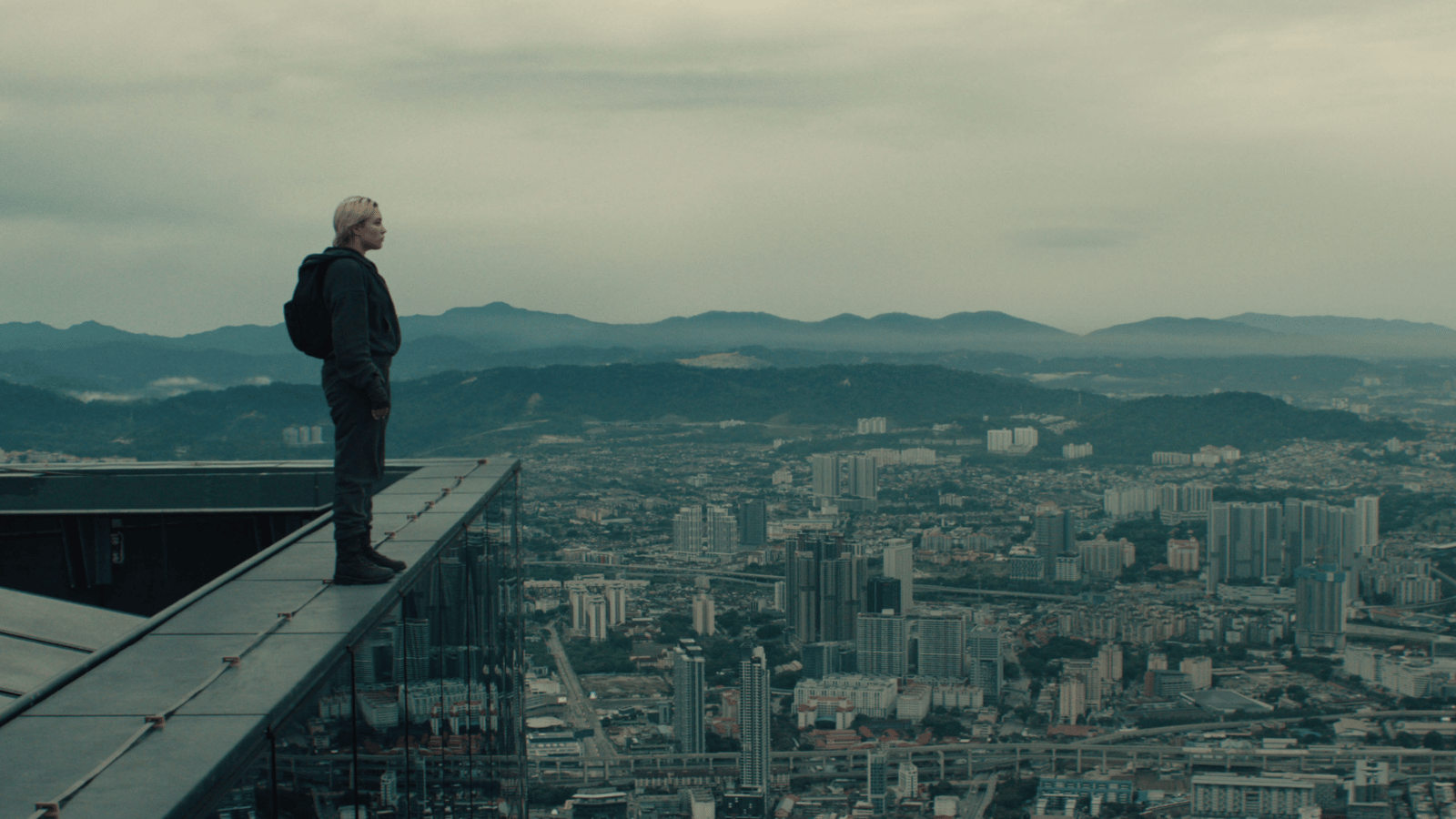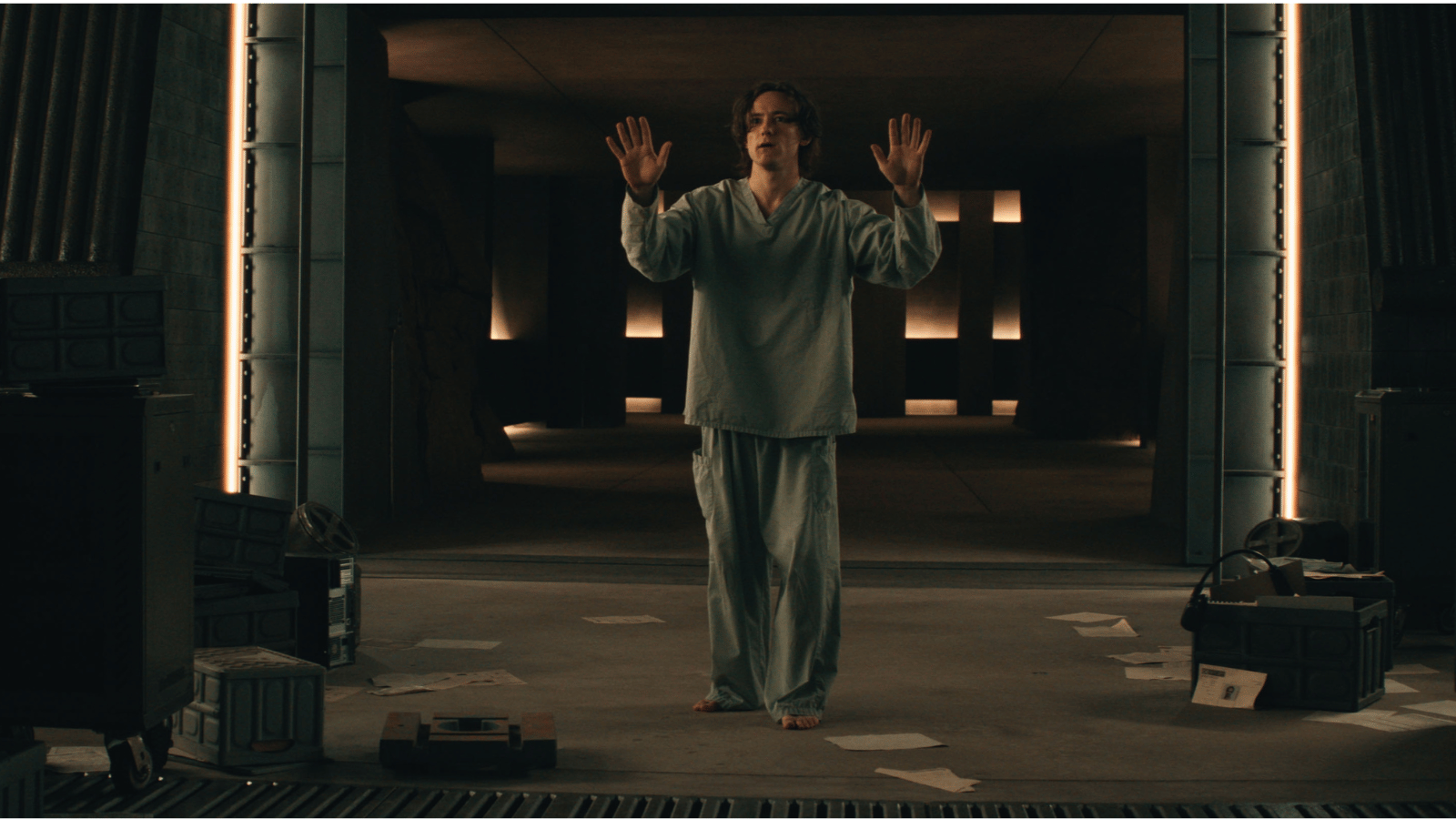Thunderbolts* (don’t mind the asterisk) is Marvel’s long-awaited answer to DC’s Suicide Squad. The concept is simple: you get some of the universe’s most interesting villains, chuck them into a room, and force them to get along. This story centers around Yelena, sister of the now-deceased Black Widow, who listlessly does secret government black ops missions on behalf of shady congresswoman Valentina Allegra de Fontaine (Julia Louis-Dreyfus) while fighting feelings of loneliness and depression from losing her sister. The movie is a fun stint with some of the universe’s rogues, but almost suffocates the experience with forgettable dialogue and humour.
What are we? Some kinda Thunderbolts*?
The Thunderbolts* are haphazardly created when Valentina, who orders secret government black ops missions through her secretary, sends Yelena to a secret nuclear bunker filled with government secrets to assassinate a thief. At the bunker, Yelena and the thief, who turns out to be Taskmaster, find themselves battling when John Walker’s Captain America appears, followed by Ant-Man and the Wasp‘s Ghost (Hannah John-Kamen). Things get more complicated when they discover another chap there, a very spaced-out comic relief man named Bob (Lewis Pullman).
Turns out, Bob was the last of a project called Sentry, an initiative to create a being with the abilities of all the Avengers combined. Supposedly, the project was enough of a failure to discard Bob and incinerate him as “evidence,” but he somehow turns out to be a successful trial. Bob is haunted by a traumatic past of abuse and addiction, but eventually morphs into the Sentry. This may not be as easy as it sounds.
The script

Thunderbolts* does a lot of telling and not much showing. The movie kicks off with quippy Yelena pulling off a badass-but-failed heist. Not too long after that, she shows up at her father, Red Guardian’s (David Harbour) home, to talk about her loneliness. This trend continues throughout the film; characters verbalise their emotions instead of them being invoked naturally by the problems they’re dealing with in the story.
This wouldn’t be as much of a problem if loneliness and depression weren’t the emotional cores of the story. But shaving the themes play out in generic dialogue leads to an emotional disconnect between the character and the audience. Outside of a single flashback for each character, the movie does a poor job of showing why they feel how they do.
Death by Marvel

It’s time to have a serious conversation about Marvel tropes. If you still enjoy the movies, then feel free to skip this point. The first problem with Thunderbolts* is that you need to have seen its characters in other movies to have a really good grasp on their mental and emotional states in this one. The second is Marvel humour. Apart from Julia Louis-Dreyfus and David Harbour, the cast’s comedic timing falls flat, especially Pullman and John-Kamen. The movie is loaded with quippy jokes that are just there to fill space, facilitated by generic dialogue that reads like a teenage drama. The third is Marvel’s on-brand, unimaginative, and heavily CGI’d action sequences.
Florence Pugh, David Harbour, and Julia Louis-Dreyfus give great performances. Louis-Dreyfus plays Val with a comedic sarcasm that feels like Celina Powell tripped into a portal and fell on the MCU, and at least makes many of Val’s asinine decisions entertaining. Florence Pugh does the best she can with a two-dimensional character, however the loneliness that defines her arc is mostly seen through mediocre dialogue. But she delivers it well.
Thunderbolts* verdict
If you’re a lover and enjoyer of the Marvel Cinematic Universe, Thunderbolts* should offer you an entertaining two hours with some of the universe’s best (available) baddies. If, on the other hand, you feel you’ve seen enough of the Marvel formula for a while, then you’ll be left questioning why Marvel killed off so many of its quality villains that could’ve been in Thunderbolts* instead, among many, many other things.
Crédito: Link de origem


Comments are closed.